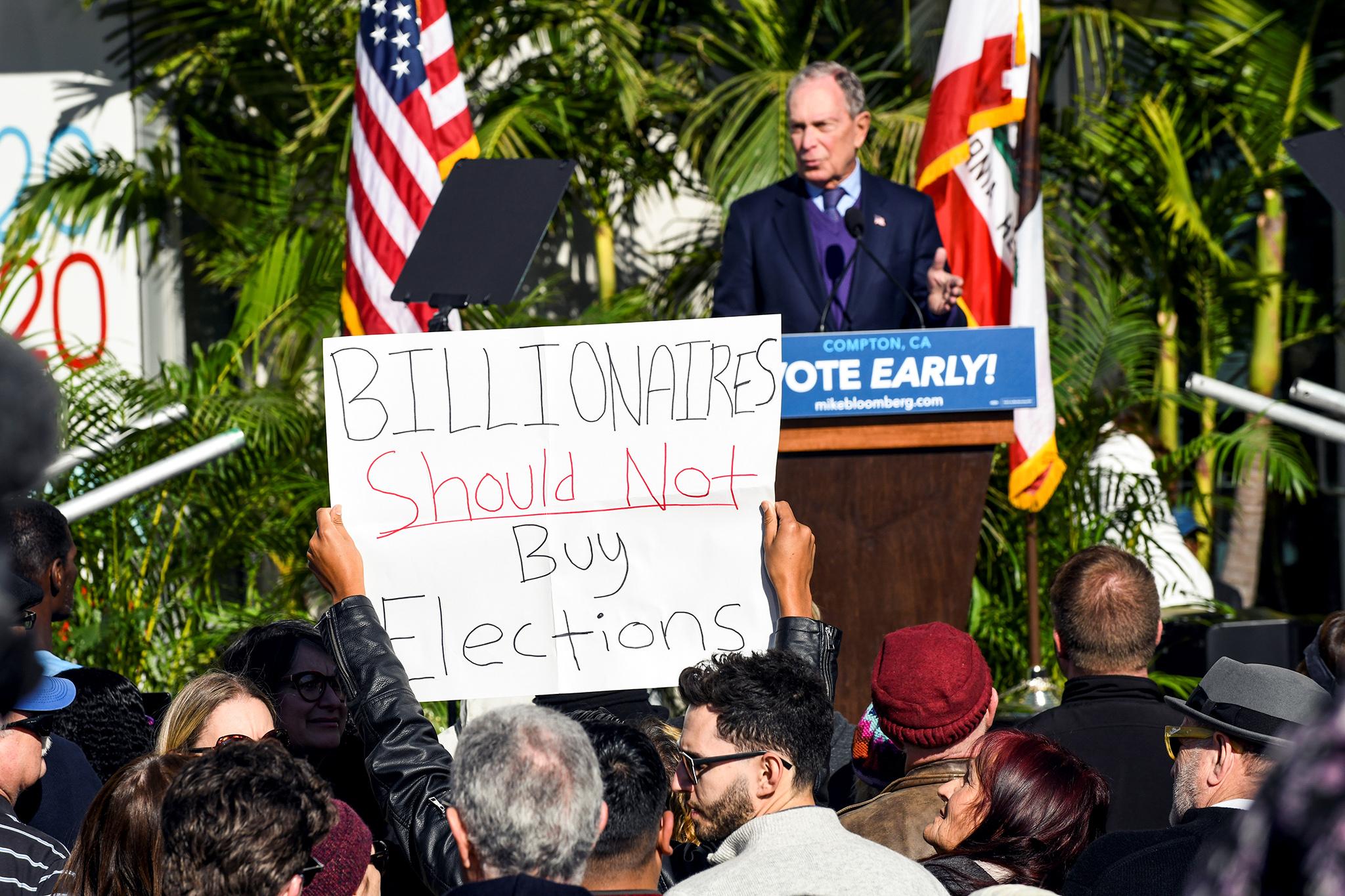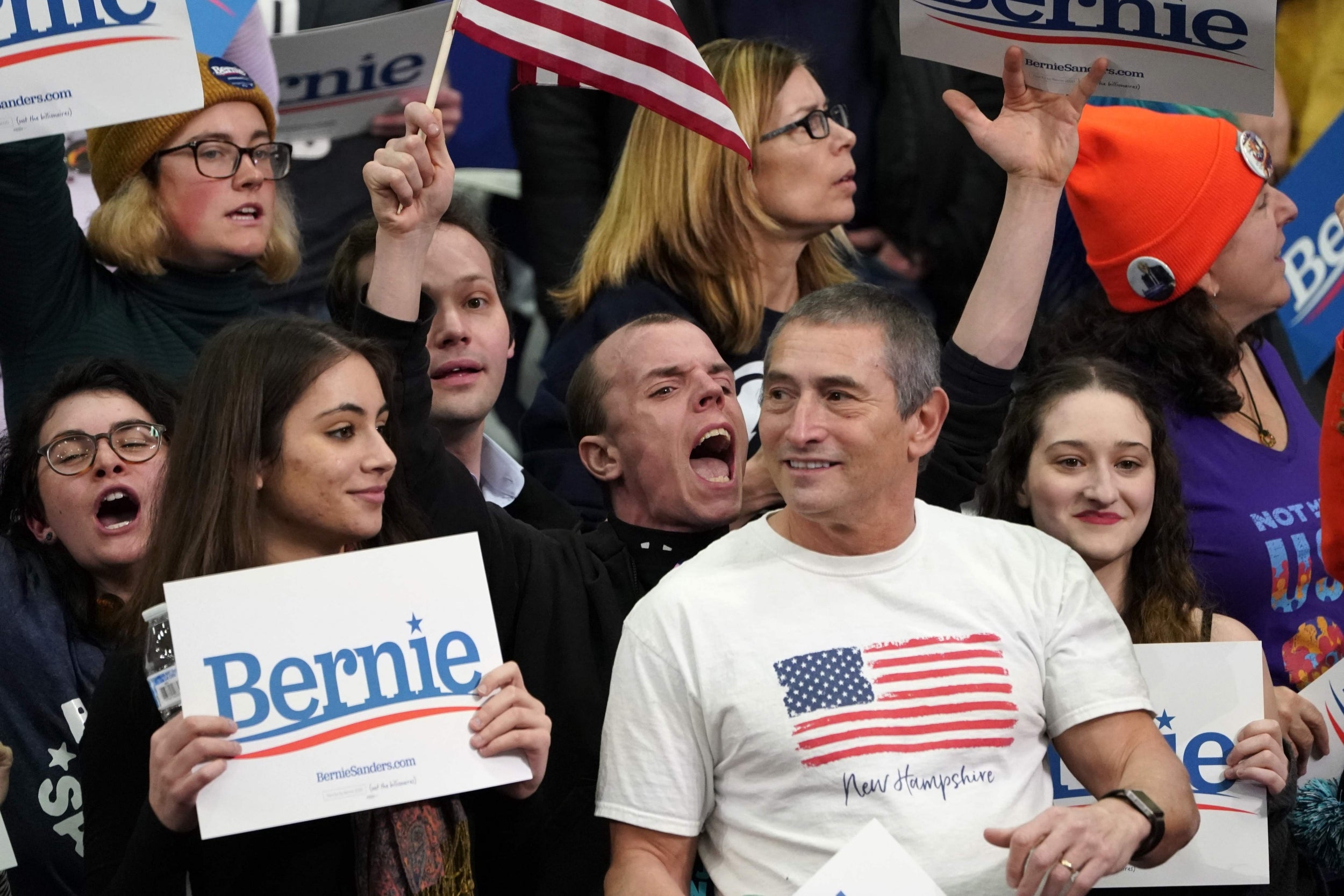What is Super Tuesday?
The big day on 3 March could trim the field down – or prolong the contest into the summer
Your support helps us to tell the story
From reproductive rights to climate change to Big Tech, The Independent is on the ground when the story is developing. Whether it's investigating the financials of Elon Musk's pro-Trump PAC or producing our latest documentary, 'The A Word', which shines a light on the American women fighting for reproductive rights, we know how important it is to parse out the facts from the messaging.
At such a critical moment in US history, we need reporters on the ground. Your donation allows us to keep sending journalists to speak to both sides of the story.
The Independent is trusted by Americans across the entire political spectrum. And unlike many other quality news outlets, we choose not to lock Americans out of our reporting and analysis with paywalls. We believe quality journalism should be available to everyone, paid for by those who can afford it.
Your support makes all the difference.In any US presidential primary, huge fanfare is given to the contests in Iowa, New Hampshire, Nevada and South Carolina. But very few presidential nominations are won and lost in those four states. It’s when the other states get in on the action that the candidates start to break ahead from the pack - or drop out.
As the primary calendar is set for each cycle, several states usually move their primaries forward in the schedule to try and boost their importance, resulting in pile-ups where multiple states end up voting on the same day. And since most states vote on Tuesdays, the day with the largest number of simultaneous contests is dubbed “Super Tuesday”.
This cycle’s Super Tuesday falls on 3 March, when voting will take place in 14 states: Alabama, Arkansas, California, Colorado, Maine, Massachusetts, Minnesota, North Carolina, Oklahoma, Tennessee, Texas, Utah, Vermont, and Virginia – along with Democrats Abroad (whose voting runs for a week) and American Samoa.
In total, 1,357 of the 1,991 pledged delegates a candidate needs to win the nomination outright are up for grabs on Super Tuesday. (Up till then, only 155 delegates will have been allocated.)
So depending how many candidates are still in the race and how much they split the vote on the day, this could completely shake up a race that’s so far looking very muddled – or it could set up a long multi-candidate battle that plunges the Democratic party into chaos.
Why it matters
Super Tuesday is hugely important for the current frontrunners, Bernie Sanders and Joe Biden, and could be crucial in deciding the future of Elizabeth Warren.
With so many states up for grabs, they each have a chance not just to capture delegates, but also to win in large swing states – like Minnesota, Colorado and Virginia – and thereby signal that they could be strong national candidates.
But the day is perhaps most critical for Michael Bloomberg.
Mr Bloomberg hasn’t competed at all in the first four contests and has instead ploughed vast sums into the Super Tuesday states, hoping to crash into the top tier by winning millions of votes and hundreds of delegates across the country in one fell swoop. If he fails, it’ll be a mortifyingly low return on investment.

Meanwhile, for those now falling behind, 3 March may be the last gasp. Elizabeth Warren desperately needs a chance to prove she still has a hope.
Ms Warren’s home state of Massachusetts is voting on the day, giving her a decent chance of netting at least one victory, but she’ll need to win more widely than that.
And if Ms Warren and Mr Biden can’t win the popular vote in at least a few states (or at least come close), they will find it hard to keep selling themselves to voters and the media – and, crucially, to donors, whose enthusiasm can decide whether a campaign lives or dies.
The same principle doesn’t apply to Mr Bloomberg, who is bankrolling his hugely expensive primary campaigns with his own funds. It also doesn’t apply to Mr Sanders, currently polling ahead nationally, whose campaign is overwhelmingly funded by small donations from his supporters (averaging under $20).
How do candidates win delegates?
The first crucial thing any candidate must do to start winning delegates is to make sure they reach 15 per cent of the popular vote wherever they’re competing. Any less than that and they won’t be allocated any delegates at all.
This applies not just at the statewide level, but also across the different districts within states that award delegates – congressional districts in some states, state senate districts in others. The system effectively means candidates can only run up a competitive delegate lead if they win in lots of different places.
The problem Super Tuesday poses is that with so many places going to the polls at once, the campaigns will have to really stretch their resources to eke out an edge in enough places to make a difference.
The nightmare scenario
In a nutshell: if too many candidates do roughly as well as each other in too many places, the whole night might do nothing to thin out the field at all.
California, for example, awards 495 pledged delegates in total, but distributes them in a complex way that makes it hard for one candidate to gain a real edge there even if they win the statewide vote.
Most of the state’s delegates – 271 of them – are awarded at the congressional district level, with each district awarding a small number proportionately depending on the result there.

Take the state’s 33rd district, which includes Beverly Hills and Malibu. It awards six delegates, meaning that if three candidates each won 30 per cent of the vote (or close to it), they’d each get two. Assuming they were the last three standing in the primary as a whole, that would make the district’s vote essentially meaningless.
If this pattern is repeated across the states voting on Super Tuesday, or even in just a few, it could mean that with more than a third of all pledged delegates allocated, nobody would begin to pull ahead.
What comes next?
Just in case the big night doesn’t sort things out, there are two more nearly-super Tuesdays shortly afterwards.
On 10 March come six contests at once: the Idaho, Michigan, Mississippi, Missouri and Washington state primaries, as well as the North Dakota caucuses.
Michigan has taken on an outsized symbolic importance thanks to Hillary Clinton’s painfully narrow loss there in 2016, so whoever wins it will benefit from a major boost to their credibility.
Then on 17 March, four big states get their turn: Arizona, Florida, Illinois and Ohio. Together they boast 577 pledged delegates, making this the biggest one-day bonanza until the so-called “Acela primary” on the east coast on 28 April.
What if they just keep going?
If these primaries don’t knock out most of the candidates, the Democrats could be in trouble. Should too many of the candidates stay in the race for the long haul, they could all keep winning enough delegates to prevent anyone from reaching an overall majority.
That could leave the party heading into its convention this summer without a guaranteed nominee, forcing the candidates to duke it out for support among the party elite – a scenario the Democrats will be desperate to avoid.
The last time the primary really went down to the wire was in 2008, when Hillary Clinton and Barack Obama ran hard against each other right until the final contests. And it was on Super Tuesday, when Clinton and Obama split the available delegates almost evenly, that the closeness of the race became clear.
What followed was four gruelling months of campaigning that some feared would leave the party badly bruised. But in the end, Clinton quickly endorsed Obama, campaigned for him, and ended up joining his cabinet as secretary of state.
However, 2016 was different. While Hillary Clinton won the nomination decisively, Bernie Sanders and his supporters never fully embraced her candidacy, deeply dividing the party’s base and further tarnishing Clinton’s reputation.
Whether this year’s candidates will share enough goodwill by the primary’s end to heal those wounds remains to be seen.
Subscribe to Independent Premium to bookmark this article
Want to bookmark your favourite articles and stories to read or reference later? Start your Independent Premium subscription today.

Join our commenting forum
Join thought-provoking conversations, follow other Independent readers and see their replies
Comments